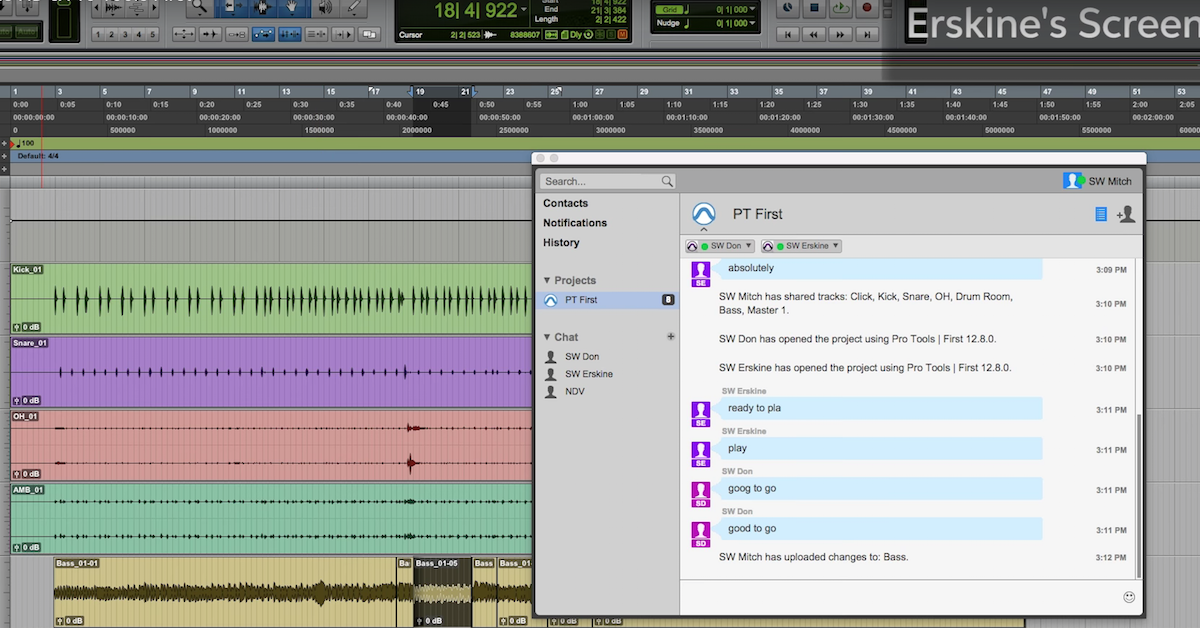4 Lessons I Learned About Audio from Woodworking
Article Content
I’m firm believer that audio engineers should live well-balanced lives. Don’t get me wrong; every engineer should specialize in his or her craft by spending years improving at their job. Along the way, I think it’s helpful to pursue other hobbies to keep your mind, body, and heart energized. Additionally, these hobbies can give you a different context or outside perspective to think about audio. To encourage this idea, I’m putting together a series of articles on t lessons I learned from things other than audio.
I have recently had the opportunity to complete some woodworking projects with a friend who is also a professional carpenter. Besides reliving the memories of my high school woodshop class, these projects got me thinking about the craft of audio by observing an expert in another trade.
It was a humbling experience to be a novice at a skill. Nonetheless, the experience taught me some lessons that I could apply to audio. Here is a list of the things I came up with:
1) The Right Tool Can Make All the Difference
When I started on the woodworking projects, I had some of the basic tools: hammer, screwdriver, handsaw, etc.
Foolishly, I didn’t realize how much my work could improve simply by using power tools. If anything, I even thought hand tools must be better than taking the easy route. I couldn’t have been more wrong.
I learned that making an investment to have access to the right tools can dramatically improve your work.
When it comes to audio, many people are very particular about their equipment. In my perspective, there are real advantages to high-quality gear. We should all be careful about being nostalgic for older, inefficient tools.
2) Expertise Is in the Details
A beginner can perform basics skills in any trade. Even I can use sandpaper to prepare some wooden chairs for staining. When I was working on these chairs with my friend, it was amazing how much better he was than me at such a trivial task as sanding.
There wasn’t one huge difference to how we sanded, but there were several small things. However, the small details added up to a noticeable difference.
One specific difference was the purpose to our approach. I was primarily sanding the chairs to remove the old stain. However, my friend was sanding the chairs to best prepare the wood for the new stain. It was a minor difference, but it was important.
The same thing is true in audio. A beginner can set up a microphone and record a guitar amp. But an expert approaches the recording while thinking about the next step in the process: how the amp will sound in the context of the mix.
3) You Can’t Rush Perfection
Craft takes time. Everyone wants fast results, but there is almost always a trade-off between speed and quality.
There is an old cliché in woodworking that goes, “Measure twice, cut once.” The point is that it is worth double-checking during preparation before making a costly mistake.
Being patient, methodical, and following a successful routine can minimize the likelihood of problems.
When working in live sound, preparation is extremely important. Even a miniscule mistake can result in a disastrous error. If the battery goes dead on the lead singer’s microphone and you don’t have a backup, don’t expect to have a job for very long.
Prepare for everything that can go wrong, and have a plan to solve issues.
4) There Is No Substitute for a Craftsman
Even if I used power tools, focused on the details, and worked carefully, my woodworking wouldn’t compare to a professional craftsman. Nothing can substitute for years of experience and practice.
When I first started working in audio, I was constantly discouraged when I compared my work to other professionals. In hindsight, it was arrogant to assume I could accomplish similar results without going through the grind.
I now appreciate the complexity of audio engineering. There are always new problems to solve and lessons to learn. There are always ways to improve your craft day after day, project after project, year after year.






